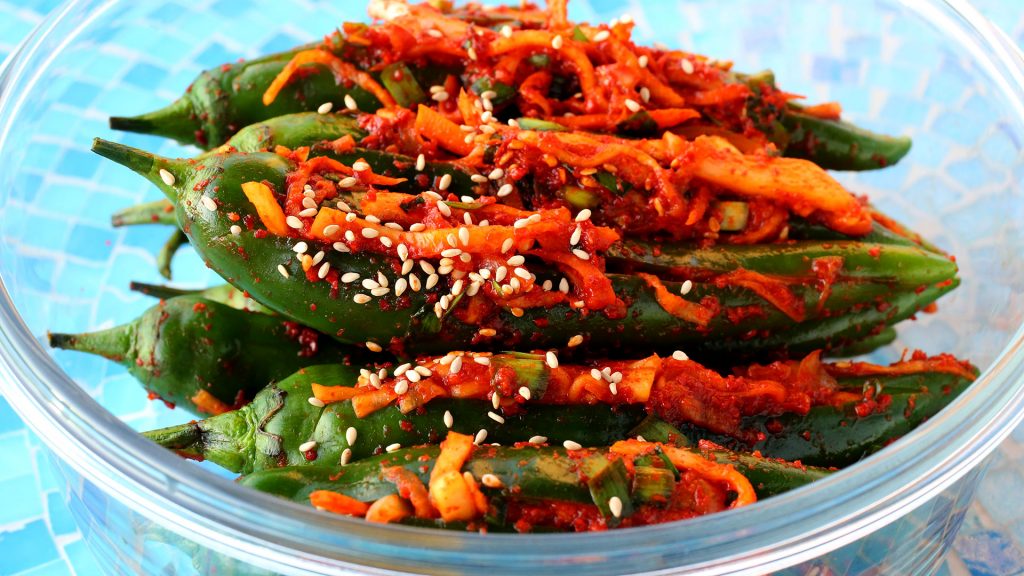The only time you may be relishing kimchi is at a Korean restaurant, when in need of a hint of spice to elevate your meal. What you may not know is that it is more than just a piquant ingredient. This fermented cabbage is a nutritional food, hailed for its ability to heal a leaky gut. And it isn’t just kimchi that’s being touted for its health benefits. Sauerkraut, kefir and raw coconut yoghurt are equally as nutritive, supporting the immune system while promoting beneficial bacteria cultures. “The best way to regain gut balance and create a healthy digestive system is to nurture your body with plenty of good bacteria. Most people go for probiotic supplements; however, they are not as useful as the good bacteria found in fermented foods,” says Hala Barghout, dietician and founder of Colour My Plate (a nutritious meal-plan delivery service).
What is fermentation? It’s a process whereby essential bacteria grows in dairy products and vegetables to flourish. The process gives them a longer shelf life and involves submerging vegetables in a salty brine to eradicate pathogenic bacteria. The good bacteria then breaks down lactose and other sugars and starches in the food, making it easily digestible while conserving nutrients. These foods exist between a space of fresh and rotten state and while that may not sound appealing – or smell enticing – they are preferred for its distinct flavour, creation of enzymes, vitamins, Omega-3 fatty acids and gut promoting abilities.
While this may seem like a trend-to-try, the preservation process isn’t a novel approach for healthy living. Fermentation came into existence over 7,000 years ago, pre-refrigerator and canning method days, when seasonal produce needed to be conserved for months ahead. Cultures have been consumed by some of our ancestors for years. Unfortunately, with the advancement of food, lack of time and availability of meals that are quick and easy to prep and eat, the age-old tradition got lost in transition.

“Fermented foods and drinks have shown to improve bowel health, relieve bloating and aid digestion and chronic fatigue, to name a few health-related issues. Furthermore, probiotic/fermented foods are also known to help those with food intolerances, insensitivities and food allergies,” says Zenia Menon, Nutritionist at Dubai Herbal Treatment & Centre. The link between food and overall wellbeing can be attributed to your gut in more ways than you can imagine. “A leaky gut is a result of poor diet choices, toxic overload, chronic stress and bacterial imbalance, and can cause malabsorption of vital nutrients like zinc, iron and vitamin B12,” says Menon. By including fermented foods that contain probiotic cultures, you can treat digestive problems and a leaky gut. Melanie Waxman, Nutritionist and Specialist in Natural Therapies at SHA Wellness Clinic, further confirms that a healthy digestive system reflects on our immune system, energy levels, brain functioning and mood.
But why the sudden craze? Of late, fermented foods have been springing up on menus – and online – with celebrity chefs such as David Chang and Jamie Oliver offering rave reviews and inspirational recipe ideas. To incorporate these foods in your diet, Barghout suggests eating it at least two to three times per week. Others to try including are organic pickles that are rich in Vitamin K, miso (a paste created by fermenting soybean, barley or brown rice with koji) that has anti-aging properties, Vitamin B-rich and cholesterol-reducing tempeh (a soybean product made with a mix of live mould), energy-booster kombucha (a carbonated sweet tea made with a mould known as Scoby), Natto (fermented soybeans) which contains anti-inflammatory enzymes, raw cheese and yoghurt.



